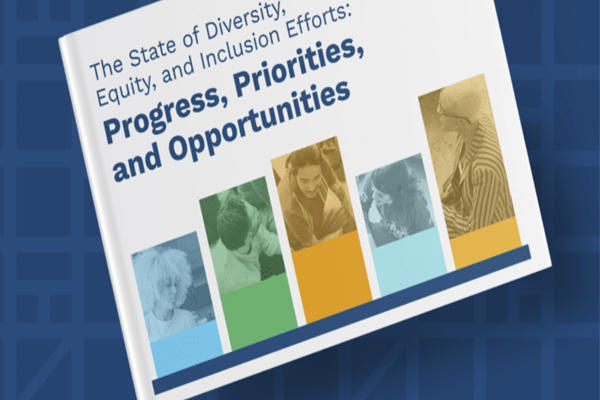Due to a ‘misalignment in communication and action’ around a quarter of staff aren’t aware of their employer’s commitment to diversity, equity and inclusion (DE&I) in the workplace in the last year, according to a new study.
The latest research from talent acquisition platform Lever has uncovered major misalignments between employer efforts and employee perceptions of workplace DE&I initiatives. Although 97% of companies report they have introduced new inclusion measures over the past year, around a quarter (24%) of employees believe their employer has not introduced any new measures.
Lever’s report, entitled the State of Diversity, Equity, and Inclusion Efforts: Progress, Priorities, and Opportunities, revealed that when it comes to DE&I initiatives, communication efforts are a barrier for employers and employees. While 64% of companies have added DE&I efforts to their home page, just 29% of employees reported their company doing this. Interestingly, despite 51% of employers sharing DE&I through company-wide channels, just 24% of employees report this happening at their organisation.
PERCEPTION GAP BETWEEN EMPLOYERS & STAFF
Additional findings from the report revealed that employees and employers have varying perceptions of equity measures at the organisation. For example, in the last year, 52% of companies have introduced measures to ensure employee pay is equal across titles or positions, but just 24% of employees report these actions at their organisation.
Additionally, nearly a third (31%) of companies began using gender-inclusive language in their employee handbooks, however, just 18% of employees report their company implementing this measure. And although more than a quarter (27%) of companies introduced or expanded inclusive benefits and perks, less than one in 10 (9%) employees reported this step was taken at their organisation.

INCLUSION PERSPECTIVES
The report also found that employers and employees have differing perspectives on inclusivity efforts. For example, nearly half (43%) of employers are making sure job postings are worded to eliminate bias, but just 27% of employees report their company does this. Additionally, although more than a third (36%) of employers have replaced educational requirements with relevant skills or core competencies in the last year, just 19% of employees know their company does this.
Employees (34%) are most concerned about improving communication around ongoing and future DE&I plans over the next year. However, employers are most concerned about internal alignment around what DE&I means for the organiaation (52%) and adopting more diverse hiring tactics (50%).
DE&I COMMITMENT
“While the survey provides an optimistic outlook on organisation’s commitment to DE&I, it also uncovers an important reality; employees aren’t aware of their company’s efforts,” stated Annie Lin, VP of People at Lever.
Lin believes meaningful change will take time, communication and measurable data. “As DE&I efforts continue to become a higher priority for more companies (a very positive trend), leaders will also need to share updates with, and solicit feedback from, their teams more intentionally,” added Lin. “At Lever, for example, we’ve implemented regular and open lines of communication with our Employee Resource Groups (ERGs), incorporated DE&I into our company-wide OKRs (which we report out progress on every two weeks at All Hands), and discuss DE&I trends on a regular cadence in our check-ins with leadership teams. It is disingenuous to talk about DE&I without action; and it is also a missed opportunity to take action on DE&I without talking about it. Employees often have great ideas and feedback to share on DE&I initiatives, including whether or not they’re actually having the intended impact day to day.”
Lever partnered with Zogby Analytics to conduct this report, an online survey of 513 HR decision-makers and 1,010 employed adults. Click here to find out more about the report.
Here are 10 actions to help accelerate diversity and inclusion progress.








































